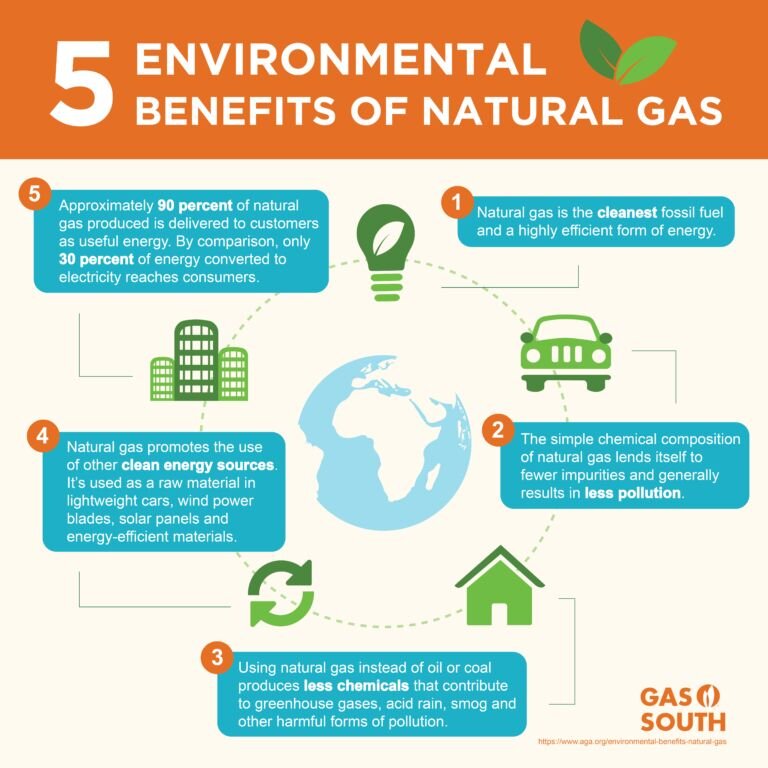5 Environmental Benefits of Natural Gas

As the most diversified fuel in the U.S., natural gas gets put to many uses. It heats our homes, businesses and schools. It’s the preferred method of cooking by chefs. And it even powers vehicles in the transportation industry. On the power generation side, it’s become the chief means to produce electricity at power plants, helping all of us reduce our carbon footprint each day when we use computers, lights, washing machines, air conditioners and a myriad other electrical devices and appliances.
Natural gas is proving to be the fuel of the future. It’s abundant, efficient, affordable and cleaner burning than other fossil fuels like coal and oil. Let’s look at five environmental benefits of natural gas.

Natural Gas Advantages
- One of the biggest benefits of natural gas is that it emits low amounts of carbon dioxide and greenhouse gasses. It’s a fossil fuel, so it has to be burned to create energy. But it’s one of the cleanest options we have, producing up to 60 percent less harmful emissions compared to fuels like coal when used by power plants to create electricity. Using natural gas to create electricity keeps the air cleaner and works against climate change—read more in our blog on natural gas as a bridge fuel to cleaner energy.
- Another big benefit of natural gas is that it can be used as a transportation fuel that’s cleaner and more efficient than traditional diesel fuel or gasoline. When compared to other petroleum fuels, natural gas has been shown to have 13% to 17% lower well-to-wheel greenhouse gas emissions and 27% lower CO2 emissions. And because it can be used as compressed natural gas, it can avoid the potential for spills like other petroleum fuels—another aspect Mother Nature appreciates. When you consider the number of 18-wheelers and delivery trucks that traverse the nation each day delivering goods, the environmental benefits of natural gas are huge.
- Most natural gas is harvested from deep below the earth, but another natural gas advantage is that is can be artificially produced from decomposing waste matter. Known as renewable natural gas, this source of energy made from the methane of wastewater or food, forestry and agricultural waste in landfills is proving to be an important fuel to help reduce our carbon footprint.
- Home appliances that run on natural gas are far more efficient than those that run on electricity. And that efficiency translates as energy savings that’s good for the environment—and your bank account! Additionally, about 90% of natural gas produced is delivered to customers as useful energy, while only 30% of energy converted to electricity reaches customers. Whether you’re using natural gas for heating, cooling, cooking or cleaning, the benefits of this clean-burning fuel are clear.
- Natural gas promotes the use of other clean energy sources. It’s used as a raw material in the production of lightweight cars, wind power blades, solar panels and other energy-efficient materials.
Ready to Sign Up?
Sign up and Save Help
Help Giving Back
Giving Back My Account
My Account Sign Up
Sign Up











